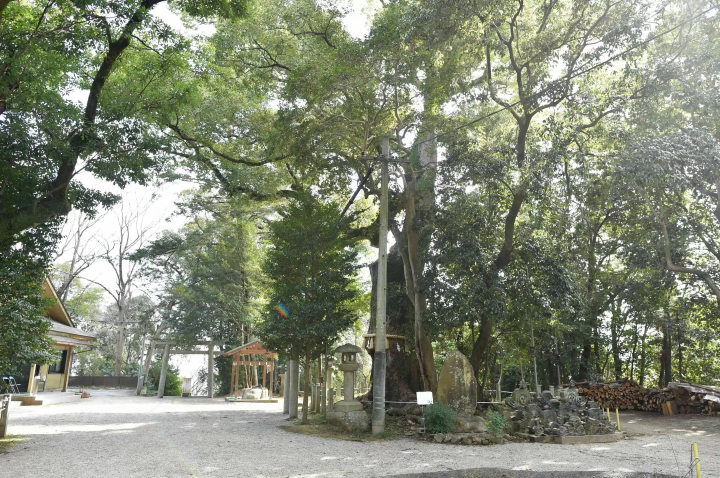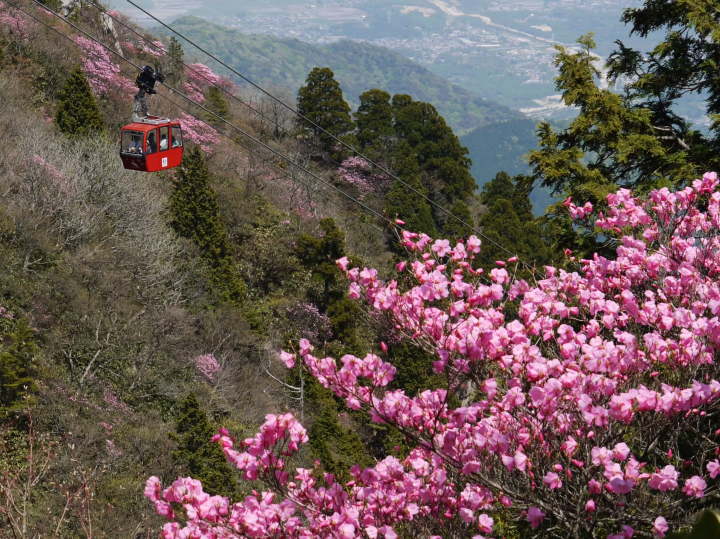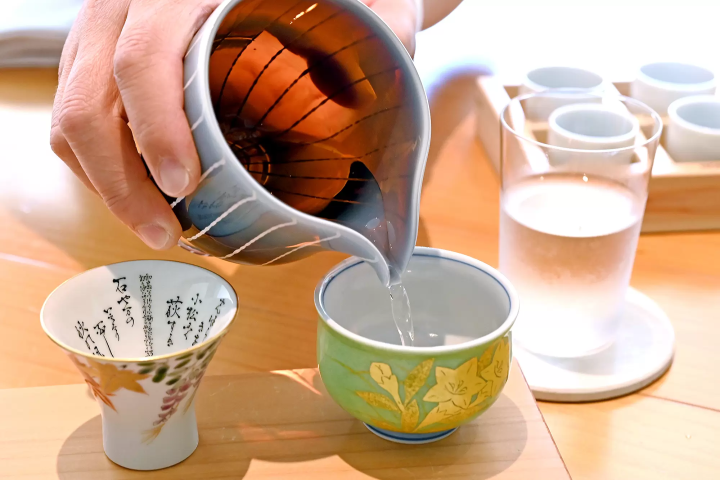Experience Japanese culture by collecting temple stamps in Matsusaka City, Mie Prefecture

This time, we will introduce the "Goshuin Tour" which involves visiting shrines in Matsusaka City, Mie Prefecture.
Refresh yourself! Feel the power of Matsusaka's Goshuin stamp tour
In today's world, we are surrounded by an abundance of things and information and are blessed with material wealth.
On the other hand, there are times when you want to feel fulfilled.
In such a case, why not go on a goshuin tour?
This time, we will visit shrines in Matsusaka City, Mie Prefecture, with a goshuincho (stamp book) in hand.

1. Matsusaka Shrine | The secret behind the familiar main hall and the hole in the sacred tree

▲The entrance to Matsusaka Shrine
If you climb the stairs leading to the grounds of Matsusaka Shrine, you will find yourself in a pleasant space surrounded by forest and greenery.

This forest is called "Yoihonomori." The dignified atmosphere will lift your spirits.
Matsusaka Shrine is a shrine that enshrines 35 gods.
Originally the shrine was called Oi Shrine and enshrined two deities, but in 1908, the government issued a Shrine Merger Order, and 17 shrines from all over Matsusaka were merged with this shrine, adding 33 deities and changing the name to Matsusaka Shrine.

▲The storehouse houses the plaques from each shrine before the merger.

▲The two mikoshi of Uryu and Yaegaki
This mikoshi is carried through the city every July during the Matsusaka Gion Festival, and is paraded through the shopping districts in the city center as the "three shrine mikoshi" carrying Matsusaka Shrine, Yakumo Shrine, and Mikuriya Shrine, which we will visit later.

The roof of the main hall has a cute, rounded shape.
In fact, this main hall was transferred directly from the Seihoden Hall of the Geku Shrine of Ise Jingu.
The current main hall was donated 93 years ago. Wood can last for 1,000 years, so we have carefully maintained and repaired it while keeping it as it is.
Looking into the grounds, you will see a sacred camphor tree that is over 900 years old and has a solid presence.

▲The sacred tree is 25m tall.

A goshuin (temple seal) featuring a picture of the 4500 forests surrounding Matsusaka Shrine and the main hall.
Furthermore, at Matsusaka Shrine, you can get a different Goshuin stamp every month. From March to May, you get cherry blossoms, from June to August, morning glories, and from September to November, autumn leaves. There is also a limited edition of 500 Goshuin stamps available for New Year's.
2) Motoori Norinaga Shrine | A shrine for academic success visited by worshippers from all over the country
Next, we would like to introduce Motoori Norinaga Shrine, which is a one-minute walk from Matsusaka Shrine.

Motoori Norinaga was a representative scholar of Japanese classics in the Edo period.
Because of his dedication to research, having spent 35 years completing "Kojikiden," a commentary on the "Kojiki," students come to Motoori Norinaga Shrine to pray for academic success.

The goshuin stamps you can get here are also featured in many books introducing goshuin stamps, and the temple attracts worshippers from all over the country who come to get them.

When people go to hang up their votive plaques, they receive many heartfelt wishes, such as for passing high school, university, national exams, and qualifications.

The ruins of Matsusaka Castle are a five-minute walk from Motoori Norinaga Shrine, and it is also recommended to view the castle guard residence from there.

▲The castle guard's residence can be seen at the foot of the castle ruins.
Matsusaka city was not bombed during the war, so the old streetscape remains beautiful to this day.
3. Mikuriya Shrine | The Mitsui Group, including Imuraya Azuki Bar!
The last shrine I would like to introduce is Mikuriya Shrine.

▲The main hall of Mikuriya Shrine
Mikuriya means "God's kitchen," and it is said that food ingredients such as rice, wheat, and fish were gathered here and offered to Ise Grand Shrine. For that reason, some people worship it as the god of food.
This is the goshuin.

There are three shrines within the grounds of Mikuriya Shrine near the main hall. We will guide you through them in order.
First, the red torii gate is Takaharu Inari Shrine.

He is the guardian deity of Imuraya Confectionery, famous for its Azuki Bars, meat buns, and red bean buns.
Next to it is Oyamazumi Shrine.

This is the guardian deity of the former Hasegawa Jirobei family in Uomachi, Matsusaka City. The Hasegawa family was a wealthy merchant family representing Matsusaka, and achieved great success with Matsusaka cotton.
Finally, the shrine with its stylish red latticework is Mimeguri Inari Shrine.

This is the shrine where the Mitsui family, the founders of the Mitsui Group, prayed. Mitsui Takatoshi, a merchant born in Matsusaka during the Edo period, is the man who built the foundations of the Mitsui Group, using innovative business methods such as storefront sales.
Mikuriya Shrine is a place where you can feel the vitality and the historical culture that has placed great importance on visiting shrines.
Time to reset your goshuin pilgrimage
The dignified atmosphere of the shrine is refreshing, and the calligraphy of the goshuin stamps written by the chief priest is beautiful. Why not try a goshuin tour of Matsusaka City and experience a mind-refreshing experience?
[Interview]
February 2022
[Interview cooperation]
・Matsusaka Shrine
1445 Tonomachi, Matsusaka City
Tel: 0598‐21-3689
・Motoori Norinaga Palace
1533-2 Tonomachi, Matsusaka City
Tel: 0598‐21-6566
・Mikuriya Shrine
690 Hinocho, Matsusaka City
Tel: 0598‐21-0861
Matsusaka City, Mie Prefecture is located almost in the center of Japan, where you can enjoy world-class gourmet Matsusaka beef, rich history and culture, and beautiful nature. During the Edo period, Matsusaka was the final post town for pilgrimages to Ise-mairi (a pilgrimage to Japan's highest-ranking shrine). These merchants succeeded in trading Matsusaka cotton in Edo and brought prosperity to Matsusaka.
The contents on this page may partially contain automatic translation.


























![[Kagoshima] Enjoy Minamisatsuma City to the Fullest! A Guide to the Scenic Beauty and Culture of Five Areas](https://resources.matcha-jp.com/resize/720x2000/2026/02/15-258755.webp)

![[Yufuin]Yufuin in 100 Minutes: Quick Access Guide](https://resources.matcha-jp.com/resize/720x2000/2026/02/15-258738.webp)
![[Shinjuku Nishiguchi HALC] About the d Point Campaign](https://resources.matcha-jp.com/resize/720x2000/2026/02/14-258714.webp)
